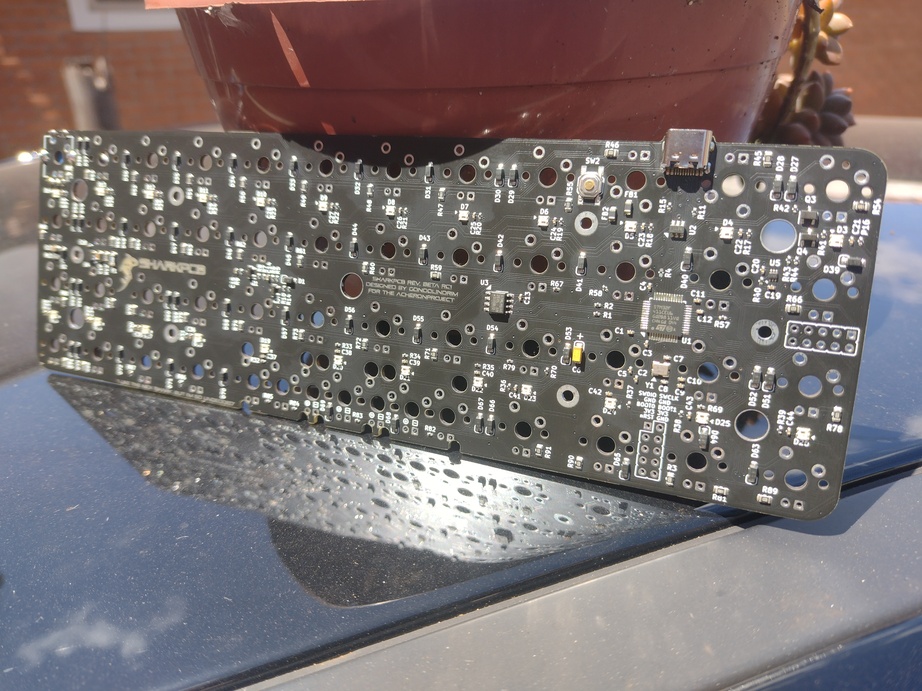| .. | ||
| alpha | ||
| beta | ||
| info.json | ||
| readme.md | ||
| shark.c | ||
| shark.h | ||
SharkPCB QMK firmware
The SharkPCB is an open-source ortholinear 40% layout designed by Gondolindrim for the AcheronProject.
- Keyboard Maintainer: Gondolindrim
- Hardware Availability: you can get release Beta SharkPCBs using the JLCPCB manufacturer using the files at its documentation
How to flash
Enter bootloader
Release Alpha:
The DFU state in the bootloader can be accessed in 2 ways:
- Bootmagic reset: hold down the key at (0,0) in the matrix (usually the top left key or Escape) and plug in the keyboard
- Physical reset button: press the button on the back of the PCB
- Keycode in layout: press the key mapped to
QK_BOOTif it is available (ESC key at layer 1 in the default layout)
Release Beta:
The DFU state in the bootloader can be accessed in 3 ways:
- Bootmagic reset: hold down the key at (0,0) in the matrix (usually the top left key or Escape) and plug in the keyboard
- Physical reset button: press the button on the back of the PCB, for at least five seconds
- Keycode in layout: press the key mapped to
QK_BOOTif it is available (ESC key at layer 1 in the default layout)
Compile firmware
Release Alpha
After accessing the DFU state in your PCB, build the default layout using:
make acheron/shark/alpha:default
Release Beta
After accessing the DFU state in your PCB, build the default layout using:
make acheron/shark/beta:default
Then download the resulting binary *bin file using dfu-util or QMK Toolbox.
See the build environment setup and the make instructions for more information. Brand new to QMK? Start with our Complete Newbs Guide.
